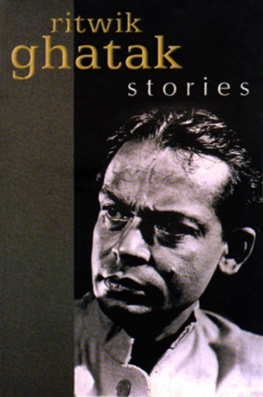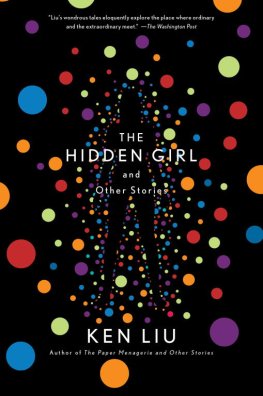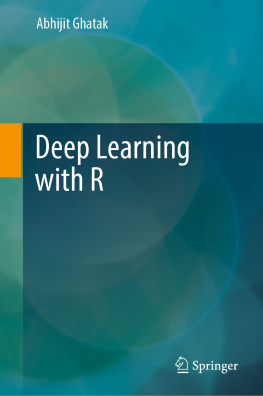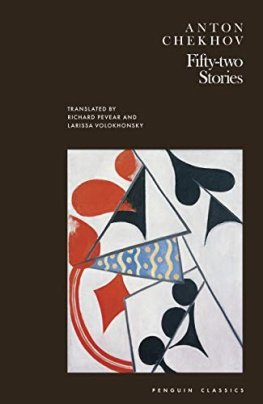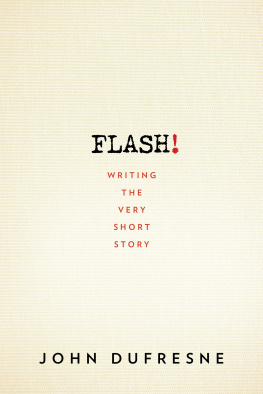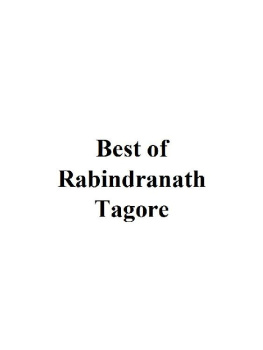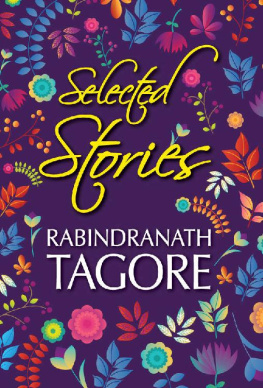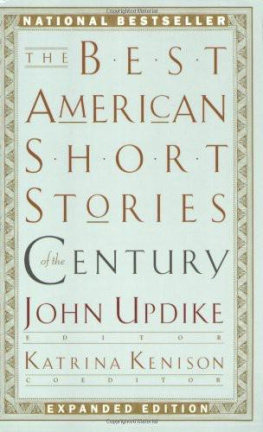Ritwik Ghatak - Stories
Here you can read online Ritwik Ghatak - Stories full text of the book (entire story) in english for free. Download pdf and epub, get meaning, cover and reviews about this ebook. year: 2002, publisher: Srishti Publishers, genre: Detective and thriller. Description of the work, (preface) as well as reviews are available. Best literature library LitArk.com created for fans of good reading and offers a wide selection of genres:
Romance novel
Science fiction
Adventure
Detective
Science
History
Home and family
Prose
Art
Politics
Computer
Non-fiction
Religion
Business
Children
Humor
Choose a favorite category and find really read worthwhile books. Enjoy immersion in the world of imagination, feel the emotions of the characters or learn something new for yourself, make an fascinating discovery.
- Book:Stories
- Author:
- Publisher:Srishti Publishers
- Genre:
- Year:2002
- Rating:5 / 5
- Favourites:Add to favourites
- Your mark:
- 100
- 1
- 2
- 3
- 4
- 5
Stories: summary, description and annotation
We offer to read an annotation, description, summary or preface (depends on what the author of the book "Stories" wrote himself). If you haven't found the necessary information about the book — write in the comments, we will try to find it.
Stories — read online for free the complete book (whole text) full work
Below is the text of the book, divided by pages. System saving the place of the last page read, allows you to conveniently read the book "Stories" online for free, without having to search again every time where you left off. Put a bookmark, and you can go to the page where you finished reading at any time.
Font size:
Interval:
Bookmark:

ritwik
ghatak
storiesritwik
ghatak
storiestranslated by
Rani Ray

Srishti
P UBLISHERS &. D ISTRIBUTORS
S RISHTI P UBLISHERS & D ISTRIBUTORS
64-A, Adhchini
Sri Aurobindo Marg
New Delhi 110017
First published by SRISHTI PUBLISHERS & DISTRIBUTORS in 2001
Copyright Srishti Publishers & Distributors 2001
Copyright original title in Bengali with
Ritwit Ghatak Foundation, Calcutta
Copyright for the English Transitions Dr. Rani Ray
Rs.195.00
ISBN 81-87075-55-4
Cover Design by Arrt Creations
45 Nehru Apartment, Kalkaji, New Delhi 110 019
e-mail:
Printed and bound in India by Saurabh Print-O-Pack Noida (UP).
All rights reserved. No part of this publication may be reproduced, stored in a retrieval system, or transmitted, in any form or by any means, electronic, mechanical, photocopying, recording, or other wise, without the prior written permission of the Publisher.
Contents
Acknowledgements
In Lieu of an Introduction
1. The Tree
2. Solstice
3. On the Trail of the Milky Way
4. The Deposition
5. Shikha
6. Ecstasy
7. The Fairy Tale
8. Raja
9. Touchstone
10. The Earthly Paradise
Remains Unshaken
11. The crystal Goblet
12. Eyes
13. Comrade
14. The Road
15. Love
16. The Divine Resonance
17. Attack
Acknowledgements
The translator gratefully acknowledges the affection, encouragement and help received from the family of Ritwik Ghatak - his wife Suroma and son Ritban - in translating his stories. Thanks are also due to Dr. Bikash Kumar Bhattacharya, Assistant Librarian, Sahitya Akademi Library, for identifying and locating the mythological sources of Ritwiks creative imagination; to Sumanta Banerjee for being the guiding spirit behind the volume; to Sonali Prakash for taking on the roles of reader, editor and critic and to Ira Bhaskar for allowing me to share her undiminished interest in Ghatak.
In Lieu of an Introduction
I
For filmlovers, whether in India or abroad, Ritwik Ghatak surely needs no introduction. But his short stories are less known than his films. For readers, therefore, a few words may be necessary by way of an introduction.
Some artists and writers, after having reached the top, appear to long for a second love a medium which is different from that in which they had established their reputation. The insatiable urge for challenges and adventures on a new soil of productivity probably drove Rabindranath Tagore to seriously take up painting in his late sixties. Or, was it a sense of impatience with the available tools of expression in poetry, which he felt were inadequate for communicating the new and complex concerns that were agonizing him in the 1930s? Were Satyajit Rays forays into the domain of science fiction and detective stories mere exercises in leisurely relaxation, or did they imply something deeper a multi-dimensional artists restless search for the right media form that would suitably express a particular idea or mood of his?
Unlike Tagores paintings or Rays fiction, the bulk of the stories that make up this volume are not experiments by a famous artist in search of a second love. They were written by an individual long before he became famous as a powerful personality in another artistic field the films. They belong to a phase in his life which could be described as that of his first love when as a young imaginative artist, he was groping for a medium that would best suit his creative urges. Like many other artists who spend their initial years of apprenticeship in stumbling from one area to another, experimenting with a variety of media, and finally discovering the most suitable one for their artistic creativity, Ritwik Ghatak also traversed this entire complex artistic terrain before he could reach the medium with which he could find himself in rapport - although he was never totally satisfied.
Ritwiks short stories were an outcome of a brief sojourn during this intellectual odyssey of his. As can be seen, most of the stories in this volume were written within a short span of three or four years, between 1947 and 1950. In order to understand them, therefore, we may have to reverse our gears - from the present to the past, from our familiarity with Ritwik, the famous film-maker of the 1950-70 period, to our search for a young and unknown writer, struggling to shape his own voice during those tumultuous years of a post-War Bengal lacerated by communal riots and the 1947 Partition and ending up in the pathetic hopelessness of the post- Independence era.
Is a reading of Ritwiks stories then merely a nostalgic exercise in remembering a past? Is this collection simply a personal tribute by a handful of his contemporaries and admirers - just to remind his audience of another facet of his versatility which was eclipsed by the more obvious wealth and virtuosity of his later filmography?
It is certainly beyond all this. We strongly feel that these stories are not to be celebrated as mere museum-pieces in a Ritwikiana , but need to be recognized historically as the first artistic steps that led to Ritwiks entry into the portals of cinematography. They therefore claim to be very much a living part of the on-going research on Ritwik Ghataks films. They are as essential as his films, for an understanding of the totality of his being that went to the making of those films. Critics and students have so far depended mainly on his scattered articles, snatches of reminiscences and stray observations, for supplementing their own appreciation of Ritwiks films. The present collection may yield to them both in India and abroad - another major source, albeit indirect, that can help them to explore some of the hidden or less-known origins that might have shaped Ritwiks filmography
At the same time, those who want to read these stories for their own sake, as self-contained literary pieces without any obligation to discover in them embryonic signs of Ritwiks future films are at liberty to interpret the various layers of meanings that they yield. They are works of miniaturist art in their own right - and as deftly-crafted short stories, some of them can easily rival the best in this genre.
II
Ritwik Kumar Ghatak was bom on November 4, 1925 in Dhaka (now in Bangladesh). He was the youngest (along with his twin sister) of nine children of a senior government official who, in the course of his assignments, was posted in different parts of the then undivided Bengal. Ritwik thus grew up in surroundings which provided him with the rich and unforgettable experience of traditional rural life in eastern Bengal. At the same time, he received abundant intellectual stimuli from his family environs that were home to modern European ideas and literature. These two basic ingredients of tradition and modernity shaped Ritwiks artistic temperament.
Remembering his childhood, spent mostly in the small towns of east Bengal in the pre-Partition era, Ritwik was to write later: My days were spent on the banks of the Padma the days of an unruly and wild child. The people on the passenger boats looked like dwellers of some distant planet. The large merchant ships coming from Patna, Bankipore, Monghyr, carried sailors speaking a strange tongue, in a mixture of broken rural Hindi and the dialect of those from across the Padma. I saw the fishermen. In the drizzling rain of the village they would in sudden joy, break into some mad tune which would pull at your heartstrings with the sudden gusts of wind and make you yearn for something vague ... Once in autumn, he sailed off on a boat and lost his way among tall grasses where snakes hid. Overwhelmed with the pollens of the grass, he almost got choked, but the memory of the pollens remained with him forever. At another time, he got hired to act in a play, missed his train, and landed up in a remote village at nightfall. It was the night before the fullmoon. In front of him was a haunted lake. He punted down the lake with a friend in the gathering darkness.
Next pageFont size:
Interval:
Bookmark:
Similar books «Stories»
Look at similar books to Stories. We have selected literature similar in name and meaning in the hope of providing readers with more options to find new, interesting, not yet read works.
Discussion, reviews of the book Stories and just readers' own opinions. Leave your comments, write what you think about the work, its meaning or the main characters. Specify what exactly you liked and what you didn't like, and why you think so.

